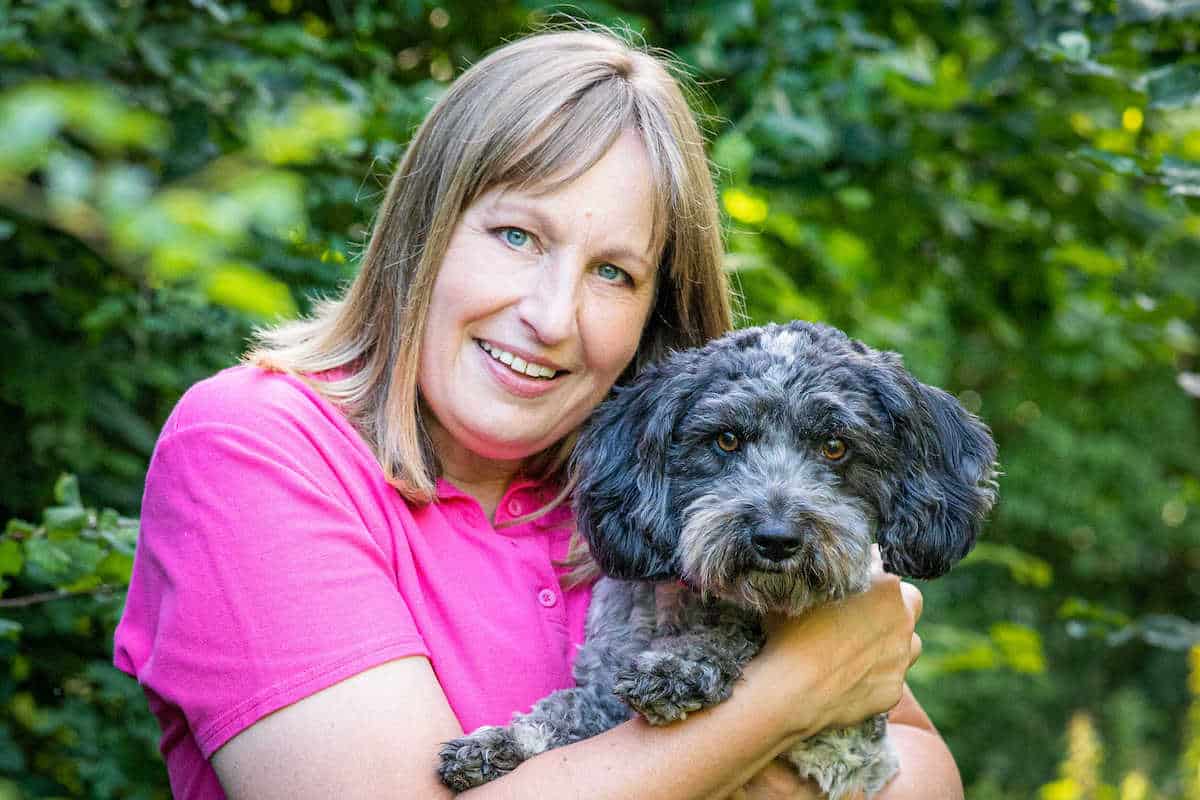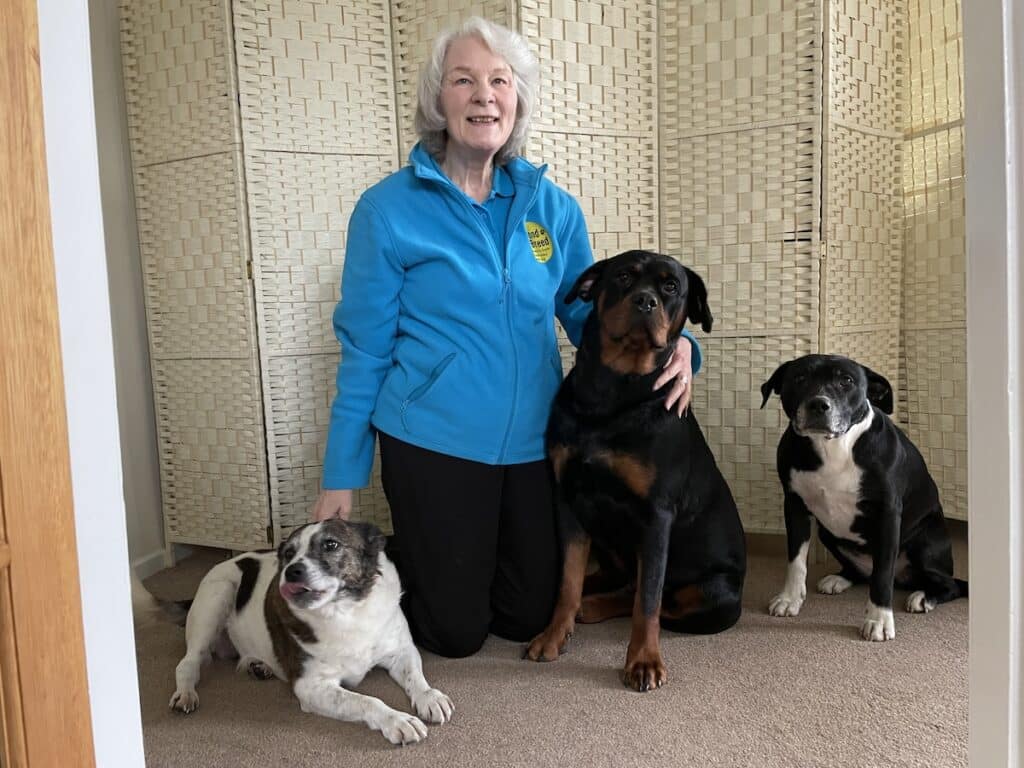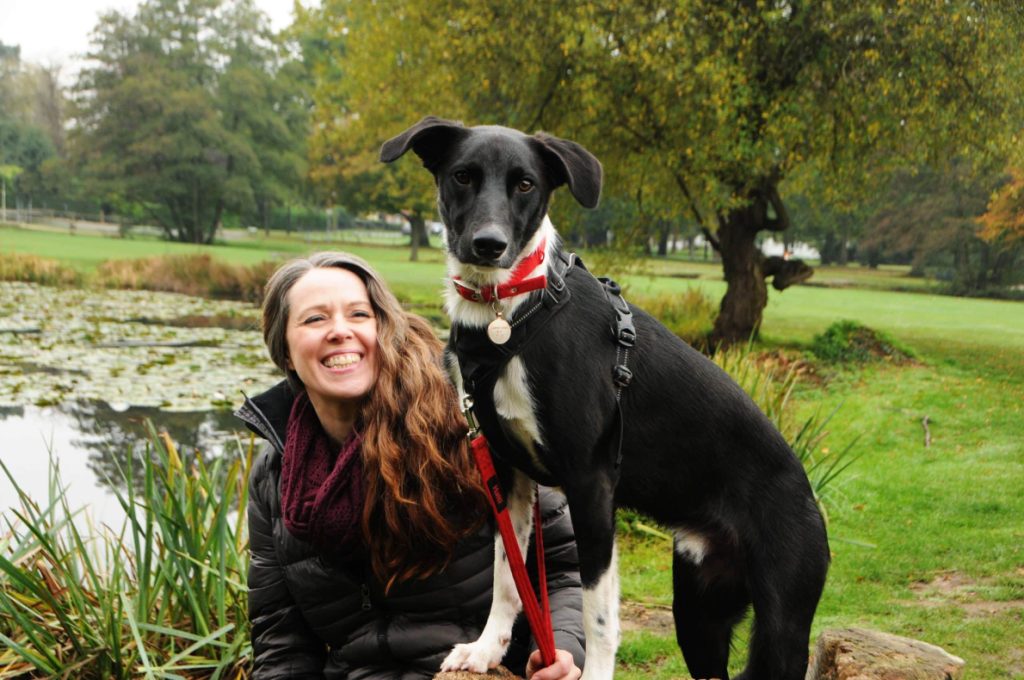Has your perfect puppy turned into a terrible teenager?
Then you’re going to love this interview with Jo Sellers who is on a mission to throw frazzled pet parents a lifeline.
She’s written a book, Adore Your Adolescent Dog, where she’s put everything she’s learned from supporting owners of challenging canines.
Just like kids, as our dogs grow up, they can be troublesome too so if your dog has turned into Kevin the Teenager overnight, help is at hand.
Jo and I chat about what inspired her to write a blueprint to survive the tricky teenage period, why dogs change, how to manage the transition and Adore Your Adolescent Dog.
You can listen to the interview on the player link as a podcast or read the key points covered below.
Hi Jo, can you tell us about about you?
“I’m a reward-based trainer specialising in Separation Anxiety and fully accredited and a certified separation anxiety specialist.
“My motivation came from my own dog Reba’s inability to be left alone, driving me to find kind methods that work to support her.
“I’ve worked with clients of all ages, but I feel a strong connection with adolescent dogs and their development.
“This led me to write ‘Adore Your Adolescent Dog,’ a book addressing their unique challenges.
“Many dogs are given up during this phase due to misconceptions about their behaviour.
“I want to help owners understand that adolescent dogs aren’t spiteful, but simply struggling.
“My book provides exercises and guidance for managing normal and challenging behaviours.
“This, along with my work on separation anxiety, stems from my desire to support owners in understanding and helping their dogs.”
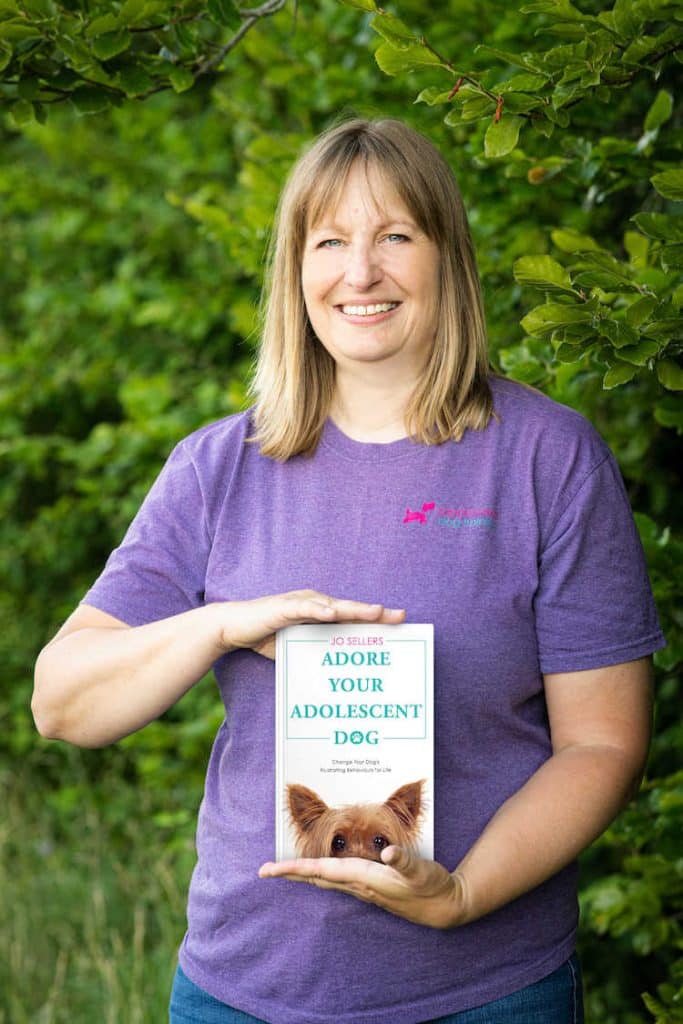
What inspired you to write a book about teenage dogs?
“I’ve spoken to charities including Dogs Trust, and the percentage of adolescent dogs in their rescues has increased from 21 per cent to 27 per cent.
“It may not seem like much, but considering the scale of the Dogs Trust, it’s a significant number.
“Many dogs, around a quarter, are between six months and under three years old.
“Not all of them are given up solely because they’re teenage dogs; there are various factors like affordability and the cost of living crisis.
“And small rescues face challenges in fostering teenage dogs.
“Spaniel Aid say that out of every four inquiries, they can only foster one.
“They receive a lot of teenage dogs, mostly males under two years old, with issues like guarding and minor biting.
“Owners may not have understood how to handle these problems, leading to escalating situations and ultimately the dog being given up.
“From 27% in major rehoming charities to 80% in specific groups, there are numerous teenage dogs given up, especially when considering all the small rescues together.”
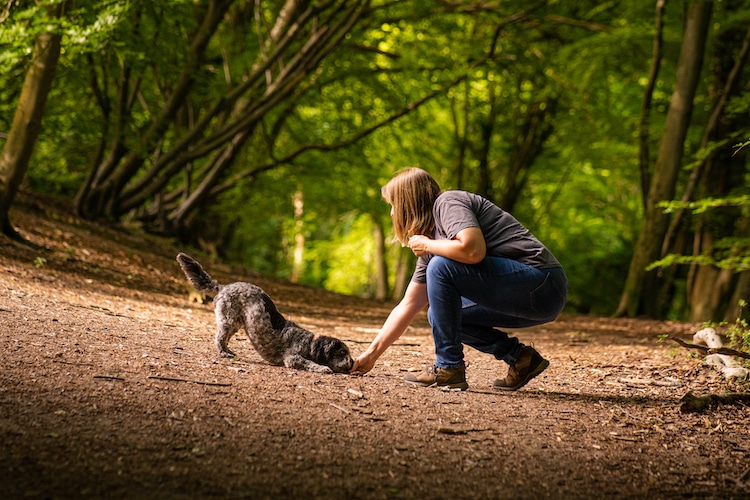
Can you define the teenage period for dogs?
“The teenage period occurs when their adult teeth come through, typically around five to six months old and lasting until around two to three years.
“The timing can vary depending on the breed size. Smaller breeds like Chihuahuas tend to develop faster than larger breeds like Newfoundlands.
“Labradors, for example, can still exhibit teenage behaviours until around two to two and a half years old.
“It’s important to note that individual dogs within a breed can also mature differently. Factors like genetics and nurturing contribute to their development.
“This phase generally encompasses the first few years of their life.”
What kind of changes can pet parents can expect to see?
“During adolescence, dogs undergo hormonal changes and their brain undergoes significant reformations.
“They become more curious, adventurous, and experience fear periods that come and go like waves.
“They tend to explore their surroundings more but may appear deaf or stubborn due to their developing brains and easily getting distracted.
“Their noses engage while their ears switch off. It’s a fascinating internal development, not a linear progression.
“People often invest in puppy training and expect immediate results, but it’s similar to human teenagers who may temporarily disregard rules.
“It’s not deliberate; their brains are still developing. Keep persevering because once they come out the other side, your dog will be wonderful.
“They may still have quirks, but they calm down and listen more, re-establishing a stronger relationship.”
What’s the key thing teenage dog owners need to understand?
“It’s important to understand that adolescent dogs aren’t being malicious; they’re just being normal.
“They still require training and socialisation.
“Socialisation is an ongoing process, even for teenage dogs, to build resilience and adaptability.
“Giving them space and time to explore helps them process new smells and other stimuli to help them mature.
“Busy and overwhelming environments can stress them out, leading to undesirable behaviours.
“Building resilience involves teaching calmness, impulse control, and providing breed-specific enrichment activities.
“Going back to basics and reteaching focus exercises is necessary, even for adult dogs.
“Regular practice and reinforcement of skills, like recall, are crucial for long-term retention. Just as with languages, if you don’t use it, you may forget it.
“Keep working on training to ensure your dog applies learned skills in different situations.”
What the message for teenage dog owners?
“Don’t rely on telling off your dog during adolescence; they don’t understand and it can make you appear scary to them.
“Focus on positive reinforcement and effective management. Seek advice from accredited trainers to navigate the challenges.
“My book and online training courses offer guidance on building focus and connection with your adolescent dog.
“Remember, adolescence is a normal part of their development, and with patience and basic training, they will grow out of it.”
Want to find out more about Jo?
Check out her website: https://www.pippinpetsdogtraining.co.uk/
Get your copy of Adore Your Adolescent dog on Amazon: https://amzn.eu/d/2r2kkCF
Follow Jo at Pippin Pets on Facebook: https://www.facebook.com/pippinpets
And on Instagram: https://www.instagram.com/pippinpets/
If you enjoyed this post, you might like to read Caroline Clark on why she wrote the book Fear and Anxiety in Dogs and Why you don’t need to walk your dog every day with Niki French


